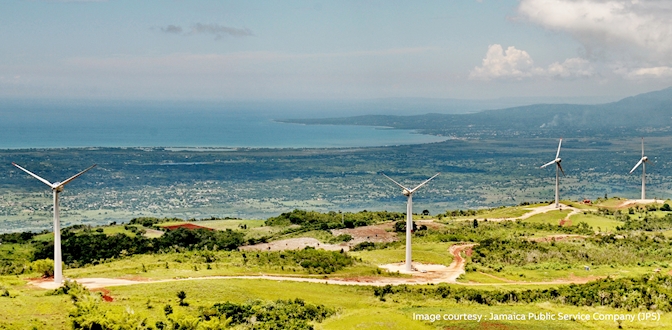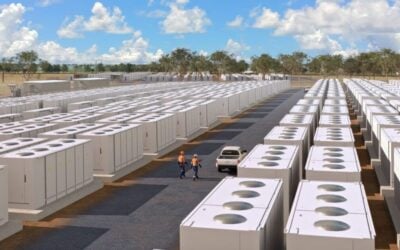
A project in Jamaica, pairing utility-scale solar with battery energy storage at a microgrid could become “a model for other countries in the Caribbean and beyond”, the head of the country’s main utility has said.
Multi-national engineering and automation firm ABB, headquartered in Switzerland, said last week that it is delivering a fully-contained microgrid project for Jamaica Public Service Company (JPS), the island nation’s sole electricity distributor and an integrated utility. Just under 20% of JPS is owned by the government of Jamaica while the majority ownership is in the hands of Japan’s Marubeni Corporation and Korea East-West Power.
Enjoy 12 months of exclusive analysis
- Regular insight and analysis of the industry’s biggest developments
- In-depth interviews with the industry’s leading figures
- Annual digital subscription to the PV Tech Power journal
- Discounts on Solar Media’s portfolio of events, in-person and virtual
JPS has already incorporated around 160MW of renewable generation capacity into its energy mix, while the country is on course to achieve a 30% energy consumption by 2030 target, which an energy minister was quoted by press last April as saying Jamaica was on course to achieve.
“This is one of the most significant projects to be undertaken by Jamaica Public Service Company Ltd (JPS), this year and will be a model for other countries in the Caribbean and beyond. ABB’s innovative technology will enable us to leverage clean renewables into our energy mix while securing grid stability and ensuring reliable power supply to consumers,” JPS president and CEO Emanuel DaRosa said.
ABB will deliver a microgrid with integrated wind and solar resources, adding to more than 40 other similar projects the company has worked on worldwide already. ABB said it will be a “24.5MW microgrid facility and energy storage system”. It will run on the company’s ABB Ability platform, which it delivers across a range of industries to digitally connect, control and monitor systems and individual components.
The primary purpose of the battery storage will be to smooth and integrate variable renewable energy generation from the wind and solar systems.
A statement from JPS on 28 February announced that a ground-breaking ceremony had taken place for the project. JPS said the ceremony was held at JPS’ Hunts Bay Power Plant Substation and revealed that the total project cost is expected to reach around US$21.6 million. JPS also declined to give further details on the system’s sizing, besides repeating the 24.5MW headline figure. It did however add that the energy storage portion of the system will utilise both “low speed flywheels and containerised lithium-ion batteries”.
“This initiative will also provide a much faster, cost effective and environmentally friendly spinning reserve (or back-up) as an alternative to traditional generation spinning reserve,” the statement added.
At last week’s Energy Storage Summit in London, Dr Britta Buchholz, a global business development manager at ABB, responsible for microgrids and distributed generation, discussed another project the company has worked on. Buchholz spoke of the Longmeadow project in Johannesburg, South Africa, a microgrid with 1MW / 380kWh of battery storage, 750kWp of PV and 1,200kW of diesel generators, installed at ABB South Africa’s headquarters.
That project enabled over 1,000 tonnes of CO2 emissions reduction annually, and up to 100% shares of renewable energy at times. It was also connected to the grid, but with a connection considered somewhat unreliable, and the microgrid is able to “seamlessly transition from grid to islanding” when there is a power outage. Prior to the microgrid’s installation, the facility had suffered more than 14 outages since 2016. The microgrid also reduces electricity costs to the Johannesburg facility by increasing use of renewable power, reducing diesel costs and by reducing peak demand. In Buchholzs’ presentation, she said that fuel consumption can be reduced by 30% to 45% for ABB renewable energy-plus-storage microgrids.
Similarly, the Jamaica project seeks to help end the heavy reliance by local businesses and public agencies on imported fossil fuels, which not only cause pollution and greenhouse gas emissions, but also contributed to volatile and rising electricity prices. It is scheduled for completion in April 2019 and some work has already begun in preparation, including soil tests and site surveys, JPS said.
“This innovative solution reinforces ABB’s position as a partner of choice in enabling a stronger, smarter and greener grid,” ABB power grid division president Claudio Facchin said.






